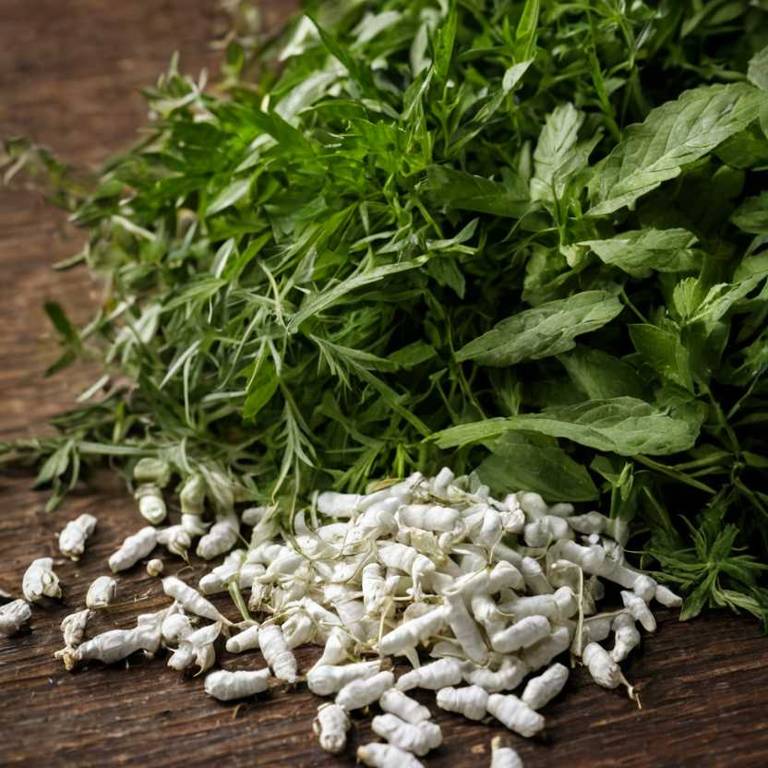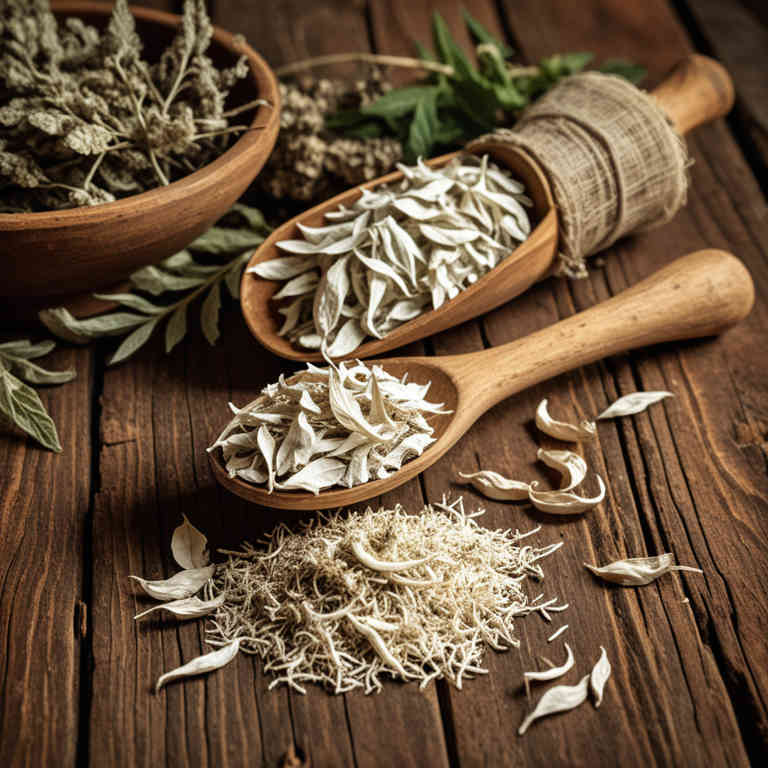10 Best Morus Alba Preparations

The best medicinal preparations of Morus alba are teas, decoctions, tinctures, mucillages, and poultices, each offering unique therapeutic benefits.
Teas made from the leaves or bark are commonly used to soothe digestive issues and reduce inflammation.
Decoctions involve boiling the bark to extract its medicinal compounds, often used for respiratory and skin conditions.
Tinctures provide a concentrated form of the herb, useful for internal and external applications.
Mucillages, derived from the bark, are valued for their soothing properties, particularly in treating wounds and inflammation.
Poultices made from fresh leaves or crushed bark are applied topically to reduce swelling and promote healing.
Below there's a list of the 10 best herbal preparations of morus alba for medicinal purposes.
- 1. Teas
- 2. Decoctions
- 3. Tinctures
- 4. Mucillages
- 5. Poultices
- 6. Creams
- 7. Syrups
- 8. Capsules
- 9. Oinments
- 10. Oils
1. Teas
Morus alba teas is commonly used to support digestive health, alleviate respiratory issues, and promote skin health.
This herbal preparation is often utilized to treat ailments such as indigestion, coughs, and skin conditions like eczema. The bioactive constituents responsible for its medicinal properties include polysaccharides, flavonoids, tannins, and phenolic compounds. These components exhibit antioxidant, anti-inflammatory, and immunomodulatory effects.
Additionally, Morus alba teas may aid in detoxification and improve overall well-being.

2. Decoctions
Morus alba decoctions is commonly used to support digestive health, reduce inflammation, and promote detoxification.
These decoctions are frequently employed to treat ailments such as constipation, gastrointestinal disorders, and skin conditions like eczema. The medicinal properties of Morus alba decoctions are attributed to bioactive constituents such as polysaccharides, phenolic compounds, and flavonoids, which exhibit antioxidant, anti-inflammatory, and immunomodulatory effects. Additionally, these decoctions may help in managing diabetes by regulating blood sugar levels.
The traditional use of Morus alba in herbal medicine highlights its versatility and therapeutic value across various health conditions.

3. Tinctures
Morus alba tinctures is commonly used to support respiratory health, alleviate symptoms of coughs and bronchitis, and promote skin healing.
These tinctures are also utilized to reduce inflammation, manage diabetes, and support immune function. The most common ailments treated include respiratory infections, skin conditions, and metabolic disorders. The bioactive constituents responsible for these effects include polyphenols, flavonoids, and mucilage, which have antioxidant, anti-inflammatory, and demulcent properties.
Additionally, Morus alba contains compounds like morin and rutin that contribute to its therapeutic benefits.

4. Mucillages
Morus alba mucillages is commonly used to treat digestive disorders, respiratory conditions, and skin ailments due to its soothing and healing properties.
The most common medicinal uses include alleviating symptoms of gastritis, coughs, and inflammation of the respiratory tract, as well as promoting wound healing and reducing irritation. It is also used in traditional medicine to support urinary tract health and manage diabetes. The bioactive constituents responsible for these effects include polysaccharides, mucilage, tannins, and flavonoids, which exhibit anti-inflammatory, antimicrobial, and antioxidant activities.
These compounds contribute to the preparation's ability to soothe mucous membranes and enhance immune function.

5. Poultices
Morus alba poultices is commonly used to treat skin conditions, inflammation, and wounds due to their soothing and healing properties.
These poultices are often applied externally to reduce swelling, alleviate pain, and promote tissue repair in conditions such as eczema, psoriasis, and minor burns. The most common medicinal uses include treating boils, abscesses, and other inflammatory skin disorders. The bioactive constituents responsible for these effects include tannins, flavonoids, alkaloids, and mucilage, which have antimicrobial, anti-inflammatory, and wound-healing properties.
These compounds work synergistically to enhance the body's natural healing processes and provide relief from various ailments.

6. Creams
Morus alba creams is commonly used to treat skin conditions and promote wound healing due to the beneficial properties of the mulberry plant.
These creams are often applied for eczema, psoriasis, and other inflammatory skin disorders. They are also used to alleviate symptoms of arthritis and joint pain due to their anti-inflammatory effects. The bioactive constituents responsible for these medicinal properties include flavonoids, polyphenols, and mucilage, which have antioxidant, anti-inflammatory, and soothing effects.
Additionally, the presence of tannins and certain vitamins contributes to the overall therapeutic value of Morus alba creams.

7. Syrups
Morus alba syrups is commonly used to alleviate respiratory conditions, such as coughs, bronchitis, and sore throats, due to its soothing and expectorant properties.
These syrups are also used to support digestive health by reducing inflammation in the gastrointestinal tract and promoting healthy bowel movements. The most common medicinal uses include treating respiratory infections, easing symptoms of asthma, and improving overall immune function. The bioactive constituents responsible for these effects include polysaccharides, flavonoids, phenolic compounds, and mucilage, which exhibit anti-inflammatory, antioxidant, and demulcent properties.
These components work together to soothe irritation, reduce inflammation, and enhance the body's natural healing processes.

8. Capsules
Morus alba capsules is commonly used to support digestive health, reduce inflammation, and promote skin healing.
These capsules are often employed to treat ailments such as constipation, skin conditions like eczema, and inflammatory disorders. The medicinal properties of Morus alba capsules are attributed to bioactive constituents such as morin, rutin, and various polyphenols. These compounds exhibit antioxidant, anti-inflammatory, and antimicrobial effects.
Additionally, the capsules may aid in detoxification and improve overall immune function.

9. Oinments
Morus alba oinments is commonly used to treat skin conditions, joint pain, and inflammation due to its anti-inflammatory and antimicrobial properties.
These oinments are frequently applied for ailments such as eczema, psoriasis, arthritis, and wounds. The bioactive constituents responsible for these effects include flavonoids, tannins, alkaloids, and polyphenols, which exhibit antioxidant, anti-inflammatory, and antimicrobial activities. Additionally, the presence of mucilage in Morus alba contributes to its soothing and protective effects on the skin.
This herbal preparation has been traditionally used in Chinese and Ayurvedic medicine for its healing properties.

10. Oils
Morus alba oils is commonly used to treat skin conditions, respiratory issues, and inflammatory disorders.
These oils are often applied topically for their soothing effects on eczema, psoriasis, and wounds, while internal use may help alleviate coughs and bronchial congestion. The most common medicinal uses include reducing inflammation, improving skin health, and supporting respiratory function. Bioactive constituents such as alpha-tocopherol, linoleic acid, and various flavonoids contribute to its anti-inflammatory, antioxidant, and antimicrobial properties.
These compounds work synergistically to provide the therapeutic benefits associated with Morus alba oils.
